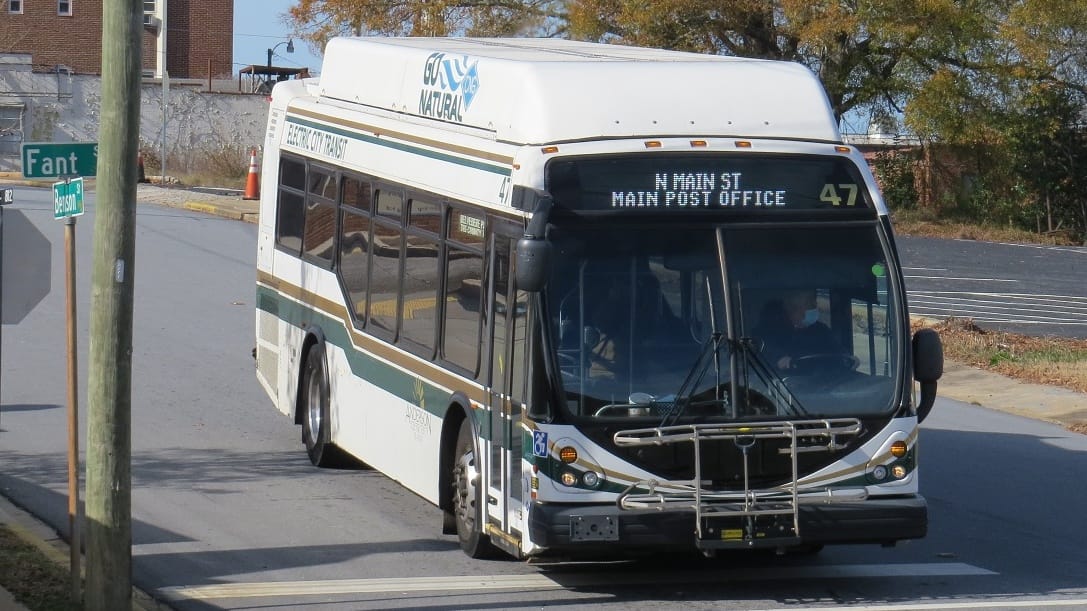Anderson may be the electric city but when it comes to public transportation, compressed natural gas is the way to go.
Like most transit systems across the country, Electric City Transit wanted to transition to alternative fuel to reduce costs and CO2 emissions, according to Transit Director Keith Scott.
“Compressed natural gas seemed to be the logical transition because those buses will travel over 200 miles in a day, but the important consideration was the infrastructure to do it,” Scott said.
That’s where the partnership with Piedmont Natural Gas began.
“PNG said if we made a commitment to go to compressed natural gas, they would build the filling station,” Scott said. “We’ve had the CNG buses since 2016 and they are the best we’ve had from a maintenance standpoint.”
While CNG buses cost more on the front end, fuel costs are much less than for a diesel bus.
“From a maintenance and fueling standpoint, we’re able to recover that upfront cost in three to 3.5 years,” Scott said. “That gives us another eight to 8.5 years to operate the bus at a savings since FTA (Federal Transit Administration) says the useful life of these buses is 12 years.”
Electric City Transit took another step in its commitment to CNG in 2020 with the construction of a new CNG maintenance facility.
“Unlike diesel that falls to the ground, gas rises so we needed a facility where we can safely and efficiently work on everything that we have,” Scott explained.
The new facility allows CNG maintenance to be conducted inside, with lights, heaters and other electrical components safely placed more than 18 inches below ceiling height. The building features a methane detection system that sounds an alarm and activates the ventilation system should it detect a natural gas leak.
The best part, according to Scott, is that the new facility was paid for with funds from the Federal Transit Administration and SC Department of Transportation, without any matching funds required from the City of Anderson.
Electric City Transit’s new CNG maintenance facility comes on the heels of a partnership with Anderson County Economic Development that made the system’s new Belton-Honea Path route a permanent one.
Started with a $100,000 pilot program grant from the SC Department of Employment & Workforce, the Belton-Honea Path route began service to about 23 companies that were having hiring difficulties. The new route had two runs in the morning and two in the afternoon to accommodate shift schedules. When grant funding expired, Electric City Transit partnered with Anderson County Economic Development to continue the route on a permanent basis and expanded it to four runs in the morning and four in the afternoon, Scott said.
“The addition of the Belton-Honea Path route has been well received by employers and employees, and a great thing for the Belton-Hone Path area that had no other transportation at all, not even cabs.”






